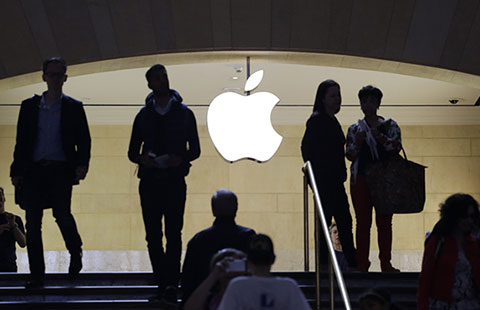Rush to set up own businesses a worry
(chinadaily.com.cn) Updated: 2015-06-12 14:12
 |
|
Max Ma, chief operating officer of FESCO Adecco, the world's largest multinational human resources company. [Photo provided to chinadaily.com.cn] |
During the first three months, China's economic growth fell to a six-year low of 7 percent, buffeted by sharp declines in industrial production and real estate construction. Meanwhile, fixed-asset investment growth dipped to a historic low of 13.5 percent, compared with the average of 15.7 percent last year.
In March, China's industrial output growth dropped to a post-crisis low of 5.6 percent, down from 6.8 percent in the first two months of the year and from 7.9 percent in December. Year-on-year retail sales growth in March slowed to 10.2 percent, the lowest level since March 2006, compared with 10.7 percent in the first two months.
China Daily asked a cross-section of senior executives from a variety of multinational companies with operations in China to offer their thoughts on the "new normal" economy and their plans in the near future.
Here are the answers from Max Ma, chief operating officer of FESCO Adecco, the world's largest multinational human resources company.
Q1. Although the GDP growth rate has fallen to 7 percent in the first quarter from 7.3 percent in the fourth quarter last year, the dip has not surprised the market. Some analysts have said the drop in growth rate is good for structural adjustment and transformation. What's your view?
A: We are not surprised at the economic slowdown. Under the New Normal of Chinese economy, reform and innovation will become the major driving power of economic development. Economic structure will undergo some changes and become more rational. Even though China's GDP growth rate has been adjusted to 7 percent, it is still quite high if compared to the rest of the world.
Q2. In March Premier Li Keqiang announced a growth target of "around 7 percent" for 2014. Do you think the target is achievable, especially when both the global and domestic economy aren't picking up as fast as they should?
A: The government has come up with a number of policies to propel economic growth, including reducing reserve ratio to stimulate domestic consumption, announcing the Belt and Road Initiative, expanding China (Shanghai) Pilot Free Trade Zone, setting up three more free trade zones in Tianjin, Guangdong and Fujian. All of these have shown the government has made a lot of efforts to boost economic development.
As we specialize in the recruitment and employee welfare services, we can learn the economic big picture from our business. Our recruitment business doubled in the first quarter of this year, which means that most companies in China have fared quite well this year. In this sense, I think it is quite likely for China to reach a 7 percent GDP growth this year.
- High-tech companies a growing force in Beijing real estate market
- Beer sales suffer due to cool weather
- China boosts world economy via investment, capacity cooperation
- China stocks close lower on Friday
- Investors' antics at stock market slump
- Stock indexes decline on selling pressure
- Virtual reality sector gearing up for the long haul
- Xbox chief sees 'long-term' future in China

















